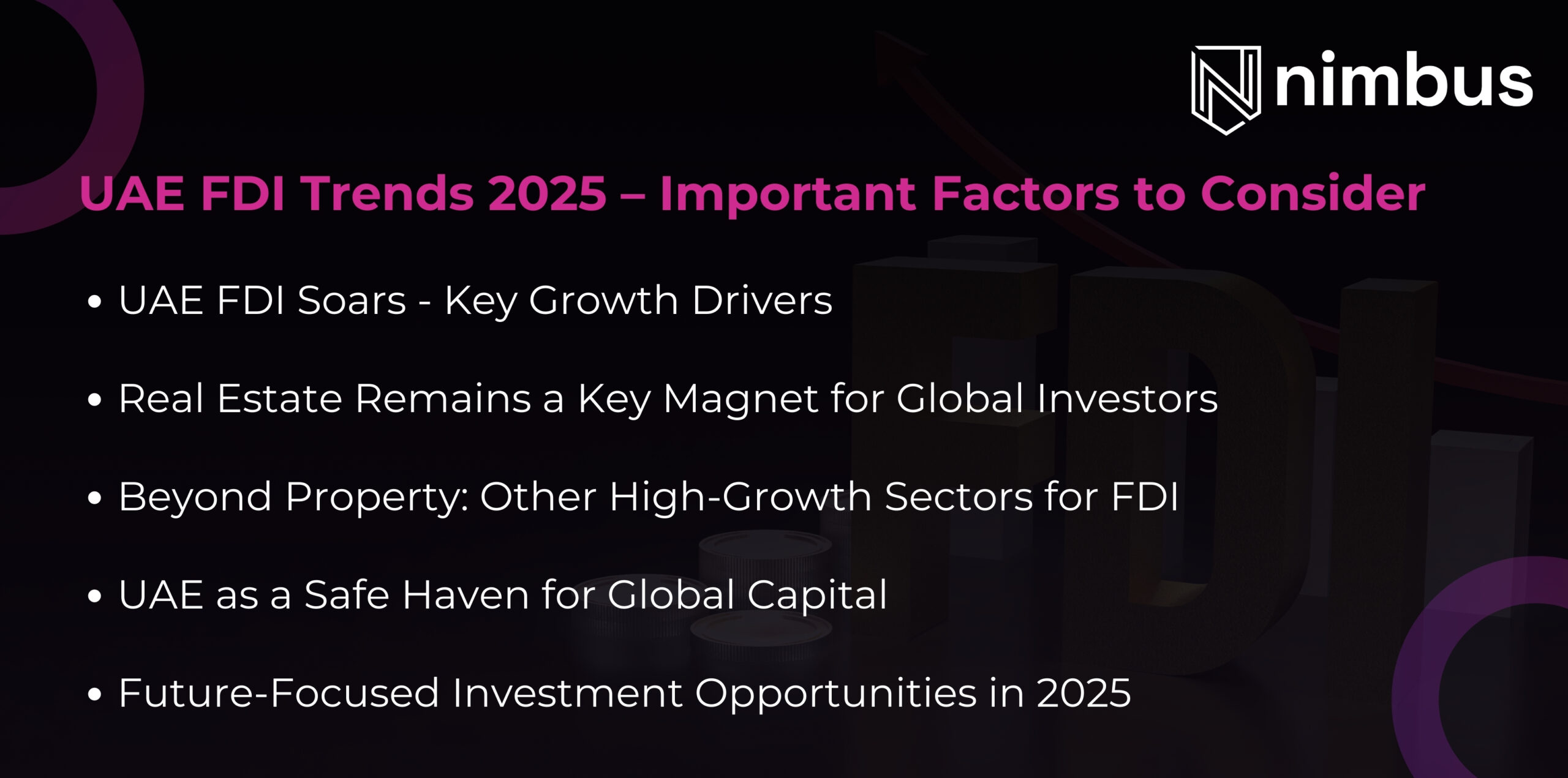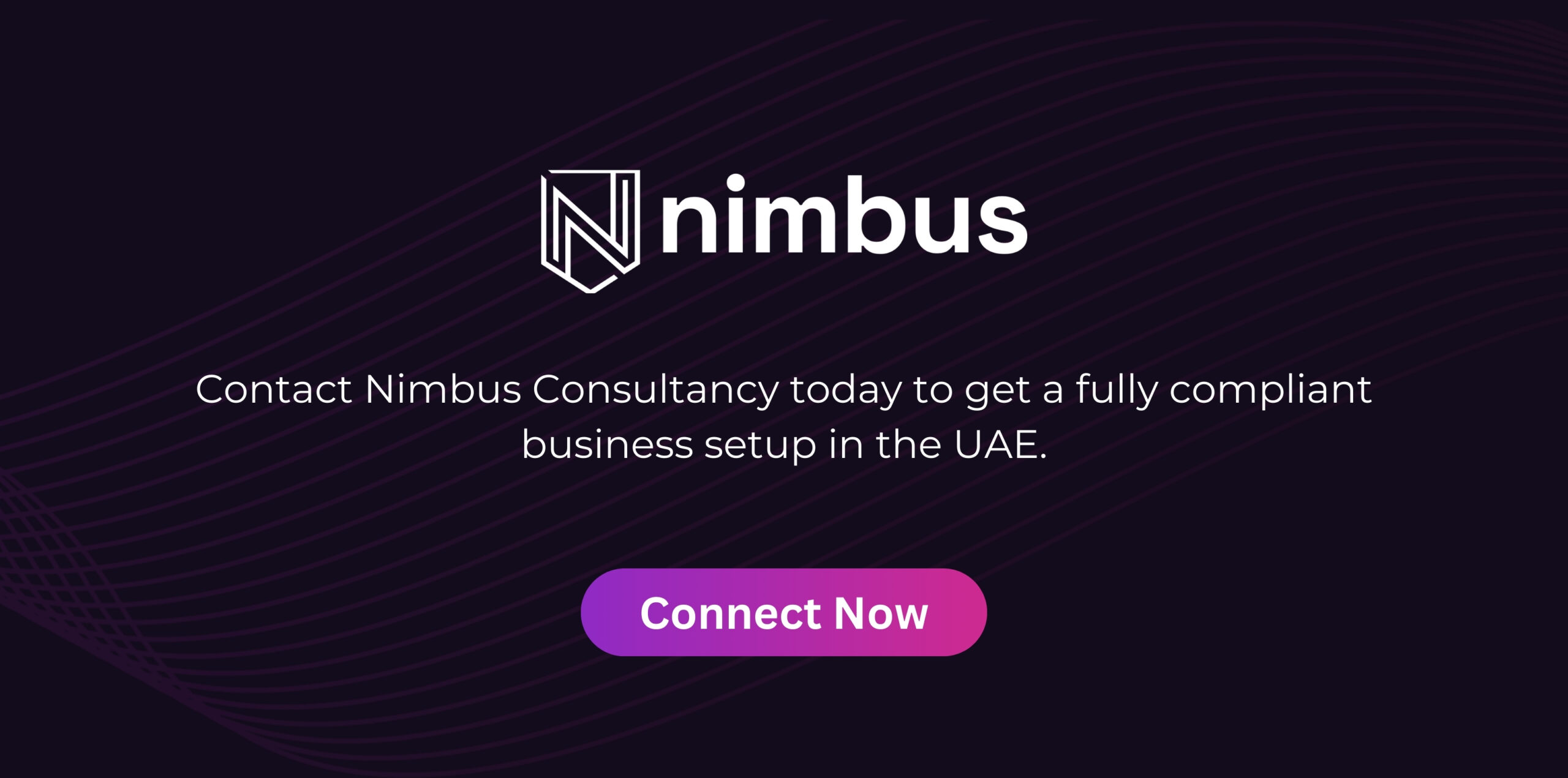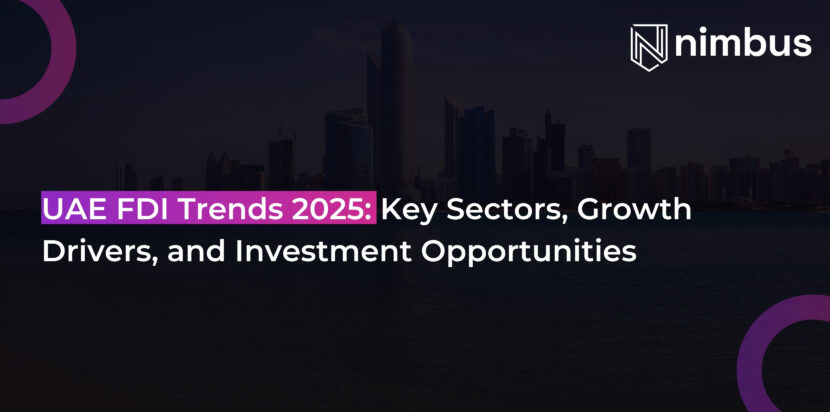The UAE continues to cement its position as a global hub for foreign direct investment (FDI) in 2025. Amid global economic uncertainty, trade tensions, and capital shifts, the UAE’s strategic policies, diversified economy, and investor-friendly regulations have attracted record levels of both institutional and high-net-worth investors.
From real estate and digital infrastructure to renewable energy and healthcare, the country is creating sustainable avenues for long-term growth and global capital inflows.
This blog explores the latest FDI trends in the UAE, highlights growth sectors, and examines the factors making the country a preferred destination for business setup in the UAE.
UAE FDI Trends 2025 – Important Factors to Consider

1. UAE FDI Soars – Key Growth Drivers
The UAE achieved record FDI inflows in 2024, totaling AED 167.5 billion (US$45.6 billion), marking a 48.5 percent increase from 2023.
This performance places the UAE among the top 10 global recipients of foreign investment and reinforces its status as the leading FDI destination in the Middle East. Investors are drawn by:
- 100 percent foreign ownership in most sectors.
- Streamlined licensing procedures that shorten business setup timelines.
- Competitive tax regime, including zero personal income tax and minimal restrictions on foreign investment.
- Political stability and a strategic location connecting Europe, Asia, and Africa.
- High-quality infrastructure, healthcare, and lifestyle amenities.
Sector diversification also reduces dependency on hydrocarbons, creating resilience and long-term growth potential. Wholesale and retail trade accounted for 26 percent of FDI stock, followed by real estate, finance and insurance, mining and quarrying, manufacturing, and other sectors.
2. Real Estate Remains a Key Magnet for Global Investors
The UAE’s real estate sector remains a major driver of foreign investment. In 2025, over 8,000 high-net-worth individuals are expected to relocate to the country, attracted by tax efficiency, lifestyle appeal, and transparent property markets.
Real estate allows investors to combine personal lifestyle goals with wealth preservation. Dubai’s prime residential market is projected to grow 8 to 12 percent in 2025, outperforming other global luxury hubs. High demand focuses on:
- Branded residences offering premium services.
- Waterfront properties with climate-resilient features.
- Communities emphasizing wellness, active living, and sustainability.
The expansion of the Golden Visa program links property investment with long-term residency, incentivizing investors to contribute capital and expertise to the UAE economy. This integration of lifestyle and investment reinforces real estate as a core pillar of FDI strategy.
3. Beyond Property: Other High-Growth Sectors for FDI
While luxury real estate remains a focal point, UAE FDI is increasingly moving into high-growth, future-oriented sectors. These include:

- Technology and digital infrastructure: Data centers, AI solutions, and smart city developments.
- Renewable energy and ESG-compliant projects: Solar farms, green hydrogen, and sustainable industrial initiatives aligned with the UAE Net Zero 2050 Strategy.
- Healthcare and education: Private hospitals, specialized clinics, international schools, and vocational training institutions.
- Hospitality and tourism: Driven by Dubai’s global events calendar, branded resorts, and luxury hospitality investments.
These sectors attract both institutional investors and impact-driven funds, diversifying investment portfolios and aligning with long-term economic objectives.
4. UAE as a Safe Haven for Global Capital
Global wealth is shifting, with high-net-worth individuals leaving traditional financial hubs due to rising taxes, political uncertainty, and trade tensions. The UAE has emerged as a safe, neutral, and politically stable destination. Investors value:
- Policy agility and fast regulatory execution.
- Transparent business setup services for the UAE that simplify company formation.
- Integration with international markets, providing seamless global trade opportunities.
- Infrastructure projects that deliver transformative economic and lifestyle benefits.
Within the Gulf, the UAE faces competition from Saudi Arabia and Qatar. However, its long-standing business ecosystem, large-scale infrastructure, and lifestyle appeal provide a distinct edge for FDI and UAE company formation.
5. Future-Focused Investment Opportunities in 2025
The UAE’s FDI outlook for 2025 remains robust. Key infrastructure projects, stable government policies, and sector diversification will sustain capital inflows despite global headwinds. Significant projects include:
- Dubai Airport expansion (AED 128 billion / US$34.85 billion).
- Inter-emirate transport networks enhancing logistics and connectivity.
- Advanced digital infrastructure supporting smart cities and technology investments.
Opportunities for investors include:
- Luxury real estate, particularly high-end waterfront and wellness-focused properties.
- Data centers, AI applications, and tech-enabled urban development.
- Healthcare facilities and private education institutions.
- Renewable energy projects and ESG-compliant investments.
These opportunities align with Vision 2031 and create a platform for sustainable business growth, positioning the UAE as not just an investment destination but a regional hub for UAE company formation.
The Road Ahead

The UAE’s FDI performance in 2025 highlights the country’s resilience, innovation, and investor appeal. Real estate, technology, renewable energy, healthcare, and hospitality sectors provide diverse avenues for long-term growth.
Combined with a stable business environment, policy agility, and strategic location, the UAE remains the preferred choice for investors seeking high returns and lifestyle integration.
For businesses considering company formation in the UAE, leveraging business setup services from an experienced advisory firm like Nimbus Consultancy can streamline the process and ensure compliance with local regulations.


